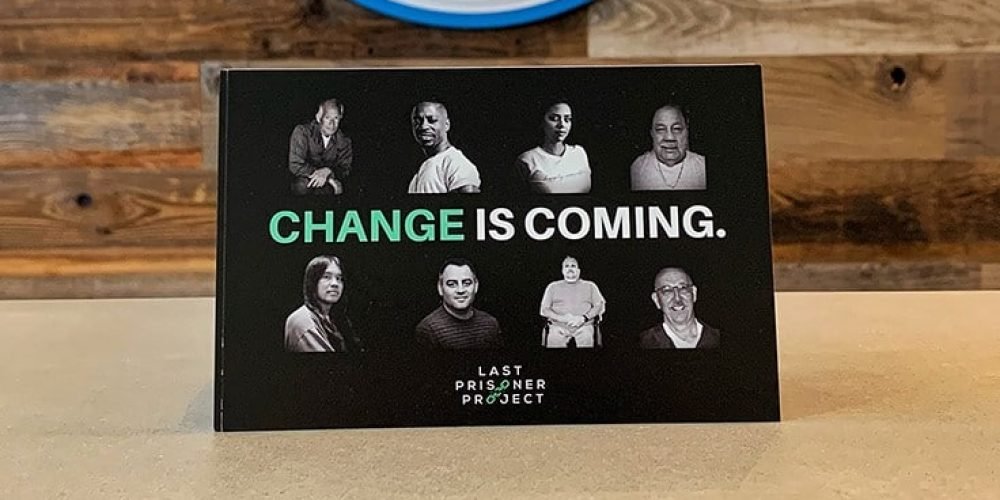As conversations around law enforcement and criminal justice reform continue as incidents of police brutality continue to spark protests across the country, many cannabis companies have made moves in recent months to support social equity initiatives and justice reform. Much of that effort has been channeled by the Last Prisoner Project , a nonprofit dedicated to legalizing cannabis and releasing and expunging the records of those who have been arrested and served prison sentences for cannabis offenses.
LPP seeks the release of every inmate imprisoned for marijuana offenses and to help them reintegrate into society after their time in prison.
And as the urgency for criminal justice reform has increased, so has support from cannabis dispensary teams, who have boosted efforts to contribute – and encouraged their customers to donate – to the LPP during the past few months, says Sarah Gersten, executive director and general counsel of LPP.
“A lot of our fundraising at LPP does come from the industry and from cannabis consumers,” Gersten says . “That kind of goes back to our ethos and reason for being, which is that our founders were actually all successful or in some way had profited off of the cannabis industry. And so, they really recognized if they were able to build wealth in this industry, they had to give back to those still suffering because of the impact of prohibition.”
Much of that fundraising happens at the point of sale, with dispensaries setting up donation programs to raise funds. One such dispensary is Chalice Farms which is based in Portland and operated by Golden Leaf Holdings .
Chalice Farms donated a percentage of sales made on Juneteenth, the June 19 commemoration of the end of slavery after the Civil War, as well as pledged a commitment of $12,000 over the next year to the LPP.
“I think our job is to continue to look for opportunities to use our platform, our stores, to generate even more revenue [for LPP],” said Jeff Yapp, CEO of Golden Leaf. “At the end of the day, the more money they have, the better they are going to be able to fight for individual cases.”
Also pledging financial support was Michigan Supply & Provisions , the Michigan distribution branch of AWH , (formerly Ascend Wellness Holdings). Michigan S&P is requesting donations from visitors of its retail locations and matching those donations up to $125,000, for a total of $250,000 for LPP.
 These customer matching programs are part of the “Roll It Up for Justice” program that the LPP sets up with dispensaries. 18 different dispensary chains are participating in the program in some way. Monetary contributions are crucial to the project’s mission, but it also emphasizes education and outreach in participating dispensaries.
These customer matching programs are part of the “Roll It Up for Justice” program that the LPP sets up with dispensaries. 18 different dispensary chains are participating in the program in some way. Monetary contributions are crucial to the project’s mission, but it also emphasizes education and outreach in participating dispensaries.
“A big piece of the Roll It Up program is not just enabling consumers to donate to these programs, but also really educating consumers and raising awareness about this problem and kind of introducing them to the ways that LPP works to address these harmful laws and injustices,” Gersten said.

 A major part of that effort is localizing the issue of cannabis prohibition, a great example of which is Michigan S&P’s focus on the case of Michael Thompson. Thompson is a Flint, Mich., native serving a 40- to 60-year sentence for selling cannabis to a police informant. He has been in prison for 25 years.
A major part of that effort is localizing the issue of cannabis prohibition, a great example of which is Michigan S&P’s focus on the case of Michael Thompson. Thompson is a Flint, Mich., native serving a 40- to 60-year sentence for selling cannabis to a police informant. He has been in prison for 25 years.
“We have posters in the store [as well as] info cards that are specific to the Last Prisoner Project and talk about the LPP as a whole. We also have signage for Michael Thompson that talks about his story,” says Stefanie Michaels, marketing director for Michigan S&P. “We will be pivoting more toward specifically helping [Thompson] because it is so close to home and it is only a Gov. [Gretchen] Whitmer [pen] stroke away… We really want to fight for him because [his release] is long overdue.”
Both Michaels and Yapp expressed the sentiment that commitment, financial and otherwise, to social equity and cannabis justice reform, felt like a responsibility.
雅普说:“很难参与一个行业,并从该行业中获得收入和收入,而且看不到其他人因我们现在的所作所为而被囚禁在监狱中并享有特权的矛盾,”雅普说。
转载自:采麻网
新闻取自各大新闻媒体,新闻内容并不代表本网立场









